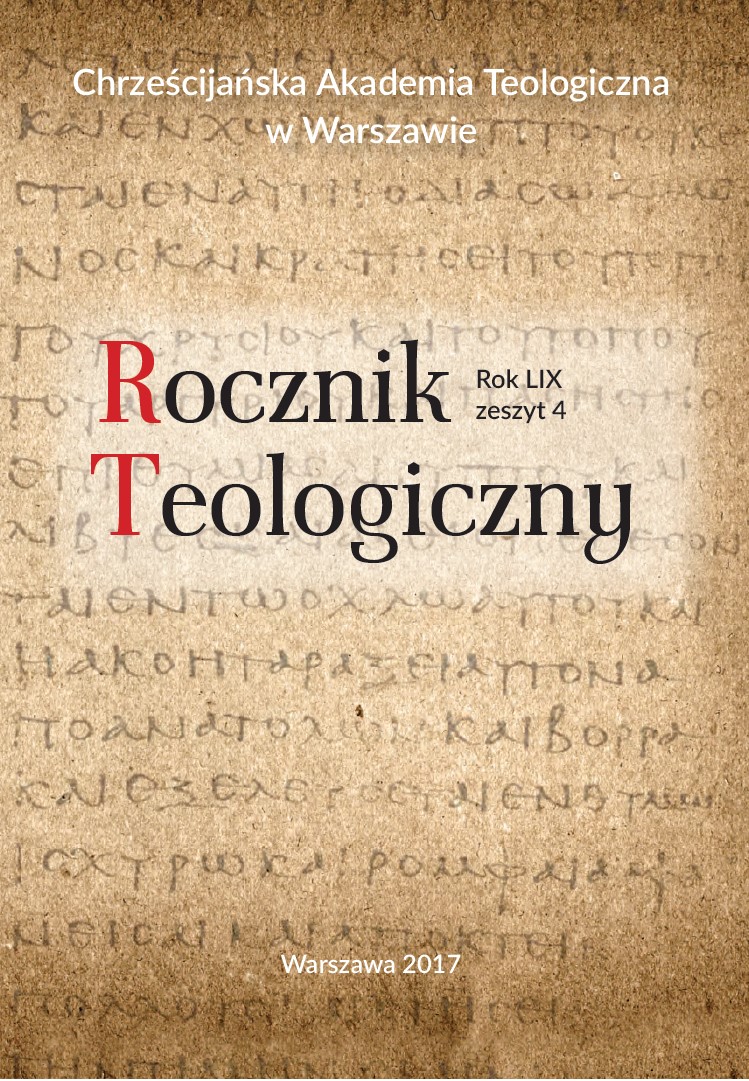Elementy hermeneutyki personalistycznej w relacji do teorii teologii Marcina Lutra
Elements of personalistic hermeneutics in relations to the theory of Martin Luther’s theology
Author(s): Tadeusz DolaSubject(s): Christian Theology and Religion, Theology and Religion, Systematic Theology
Published by: Wydawnictwo Naukowe ChAT
Keywords: Martin Luther; Czesław S. Bartnik; personalistic hermeneutics; Christology; philosophy
Summary/Abstract: The aim of the article is to compare the theory of Luther’s theology and the personalistic hermeneutics of the Lublin school. Despite the considerable temporal and mental distances between these two types of theological thinking, there are certain points in common. Th ese include the assumption of pursuing theology which has a distinct personal character in Luther’s writings and the Lublin school. It infl uences all their theological refl ection. The common element of Luther’s theology and personalistic hermeneutics is the importance of Christology for theological research. Luther puts Christ at the very centre of his theology, for Bartnik the fi gure of Christ is the basis of interpretation of man and the world. What most distinguishes Luther from Lublin hermeneutics is his approach to philosophy. According to Luther, it is unnecessary and even detrimental to theological research, while Bartnik sees in it a necessary tool in the correct pursuit of theology
Journal: Rocznik Teologiczny
- Issue Year: 59/2017
- Issue No: 4
- Page Range: 821-834
- Page Count: 14
- Language: Polish

